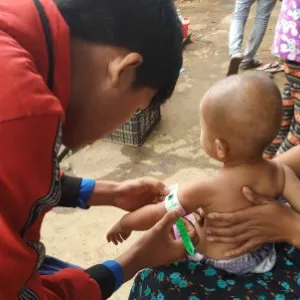Cash, COVID, coup, crisis: A pre-pandemic maternal and child cash transfer program had sustained dietary benefits during Myanmar’s ongoing emergency
by Derek Headey and Elisa Maffioli OPEN ACCESS | CC-BY-4.0 Myanmar—its economy, society, and political system—finds itself in tragic circumstances, with deep, prolonged, and multifaceted hardships falling upon its people. During the 2010s, the country made substantial progress addressing some of its longstanding problems. Poverty and malnutrition were still widespread (in 2015-16, one third of preschool children were stunted and

Cash, COVID, coup, crisis: A pre-pandemic maternal and child cash transfer program had sustained dietary benefits during Myanmar’s ongoing emergency
Myanmar—its economy, society, and political system—finds itself in tragic circumstances, with deep, prolonged, and multifaceted hardships falling upon its people.
During the 2010s, the country made substantial progress addressing some of its longstanding problems. Poverty and malnutrition were still widespread (in 2015-16, one third of preschool children were stunted and three quarters had inadequately diverse diets), but economic growth was strong, and the democratic government and its development partners were rolling out and scaling up social protection programs for the first time in Myanmar’s history.

